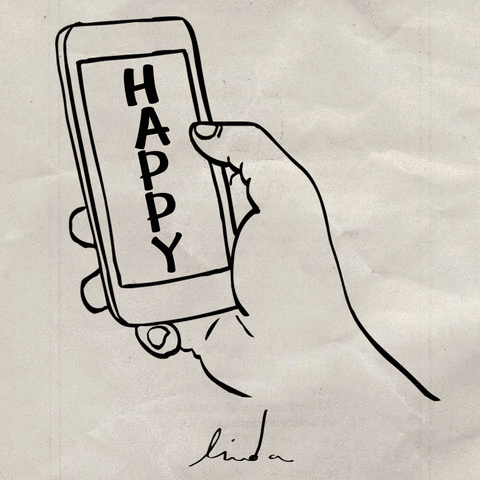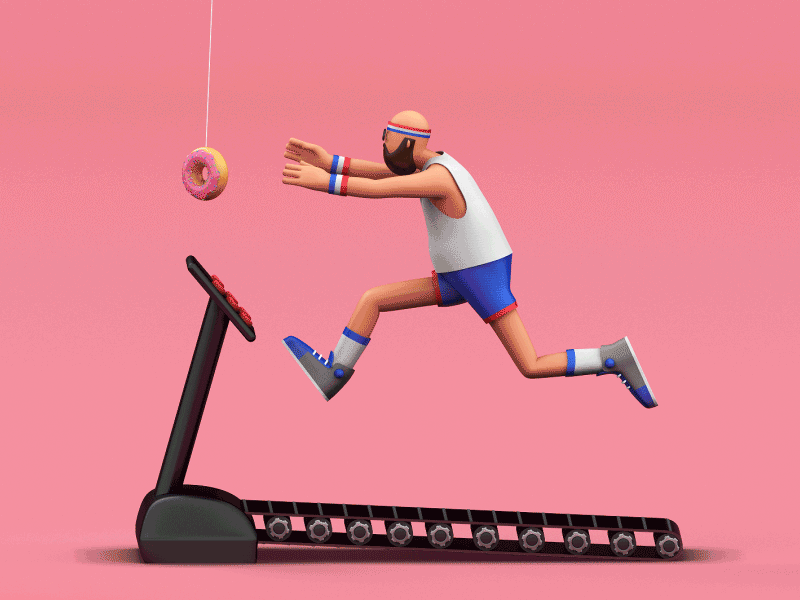The Habits of the Happy
How to train yourself to become happier, and a tale of redemption, love, and forgiveness.
Justin's tips on habits that you can start building to be happier.
Quest Minutes: Jewel - four-time Grammy nominated singer, songwriter, actress and author.
The Habits of the Happy
We have talked at length about the Hedonic Treadmill before, and how it can often become the greatest sources of misery in our lives. This is a cyclical trap: the attraction of external conquests is invariably followed by the experience of a constantly adapted disappointment.
The tragic irony is that people end up chasing their own unhappiness, without ever realizing it. Justin often talks about how his success as a founder, investor, and his fame still left him as unhappy as he ever was.
The first step (particularly tricky) is realizing that you are on the treadmill in the first place. You don’t have to get it right the first time, and it is normal to struggle with getting on and off throughout your life. Being conscious of it and keeping in mind is already an enormous step.
Start treating happiness as a process of habits you can develop. While certainly not an exhaustive list, some of the following steps may be helpful to you.
Gratitude Journaling
Find three things that you are grateful for in your life, and write them down every single morning. It takes only five minutes, and it can be anything you want. You can be grateful for your morning coffee, being healthy, your family/friends, Netflix, memes, or the ‘Skip Ad’ button. Implementing habits of active gratitude can help you become less hampered by trivialities throughout the day by changing your mental setting to seek positive reinforcement.
Negative Visualization
It may sound a little strange, or even a little frightening. Close your eyes and visualize a really bad hypothetical situation.
What if you suddenly went blind? Or if you suddenly got very ill, or suffered a catastrophic injury that affected you permanently? What would your life be like?
In the beginning, you might be horrified. Then, you will come to two realizations. The first is that you would find, as humans invariably and persistently do, a way to adjust to the situation and life would continue. It would be difficult, but you know you’ll find a way.
The second, and perhaps more important, is that as you return to your present, you realize that your life is not like that. You become much more grateful of the present, in knowing that there are many things much better now than they could be.
Meditation
Meditation doesn’t have to be a big ordeal. There are many ways to go about it, and there are a lot of helpful tools at your disposal to help you get started such as apps like Headspace. Even sitting for a couple of minutes at a time to get comfortable with yourself and your environment can be effective.
As the world becomes a more complex and hectic place, our minds are adaptively hardwired for constant stimulation and reward. It is easy to become detached from our mental and emotional clarity. Find a practice that suits your style and schedule, and keep consistent!
Reducing phone/social media usage
Social media can be incredibly toxic. Constantly being bombarded by other people making their lives seem more exciting than it actually is online can often leave us feeling inadequate and bitter. Taking a break from time to time can do wonders for your mental state and being present. This can mean turning off your phone, logging out of certain apps, or just straight up deleting them.
Exercise
Happiness isn’t only a state of the mind - your body (aka the suit of meat your brain is piloting) is involved too! It doesn’t have to be grueling - find an activity that you enjoy that gets you moving and active. You could play basketball with your friends, hike, swim at the beach, stretch, do yoga or lift weights in the gym; all you need to do is move around.
You can start slow and set the bar super low to build yourself some healthy habits and learn to enjoy the process. This includes making better food choices and cleaning up your diet too. Physical health is every bit as important as your mental well-being!
Every form of cardio is acceptable, unless you are running on the Hedonic Treadmill.
Therapy
It is cathartic to have someone to talk to about your problems and concerns. While your friends and family are always there for you, sometimes it helps to have a professional set of ears to help guide you through, reflect, and provide qualified insight to your experience. We may also feel like we're overburdening our friends and family with our emotions, so talking to a therapist can allow us to be incredibly honest and candid. This is something you should do as early as you can if you are able to. Don’t avoid pain (discussed further below in this week’s Quest Minutes!)
You can watch Justin’s full video on this topic here:
If you found this helpful, share it with someone who might be able to use some of these habits in their own happiness journey.
Leave us a comment - tell us which of these habits are your favorite, or which one you are planning to try!
👩🏼🎤 Quest Minutes: Jewel
Diamonds are Forever:
Jewel is a four-time Grammy nominated singer, songwriter, actress and author who has sold over 30 million albums worldwide. True to her name, Jewel shines with spirit and perseverance despite the pressures of a painful childhood, homelessness, and trauma.
Rather than succumbing to hate bitterness, she found power in redemption, forgiveness and love. Her story teaches us that our pain does not define us; it is the way we choose to deal with it that shapes us.
Here are some the most important lessons from the episode.
The eye of the storm is the calmest place [03:55]
“It really doesn't take a particularly special talent to get through pain, it just takes a certain type of stubbornness, a willingness to keep standing up and asking yourself one simple question, ‘do you want to die?’ Because that's going to tell you a plan of action.
I never wanted to die. And that meant I had to ask myself the next question, which is, ‘what am I going to do different today than I did yesterday?’”
There is no shortcut for dealing with pain, nor is it something you can outrun forever. The fastest way to get through the storm is to go straight to where you feel uncomfortable. This is one of the most painful and difficult lessons that Justin learned in his thirties, but Jewel learnt that as a child.
Shift your mindset towards your anxiety and move directly at the uncomfortable parts of yourself with curiosity. Avoidance adds layers of repression and resentment which usually rears its ugly head towards others and ourselves. This process is often frightening and necessarily confronting, but you will find peace in the eye of the storm.
Be present [27:56]
“My anxiety was virtually gone in two weeks. It was a shocking side effect. It was like discovering, I mean, it was just mind blowing. What I had stumbled on was ‘presence’, right? I had stumbled on learning how to stop taking the past and projecting into the future.”
Jewel struggled with constant anxiety because she felt she was no longer in control of her actions. She became disassociated from the present, dwelling on past traumas and projections in the future. But the simple act of just watching her hands for two weeks allowed her to be mindful and focused on the present world around her, which gave her agency and helped her control her anxiety. She was later able to turn this consciousness of the state of her mind to prevent panic attacks.
Forgiveness is powerful [39:03]
“In order for you to let go of the bitterness, let go of the anger, you're gonna have to cut your ties to it. And that’s what a grudge does, right? The opposite of forgiveness is a grudge or a resentment. Pretend it's a balloon…‘That balloon is incarnate of the devil,’ and I'm fixating on it. What it does is keep me in relationship to it… my anger and my resentment keeps me in a relationship to what I say I want to be free from.”
Grudges and resentments are like balloons that we hold on to, and they expand as we keep dwelling on them. The only way to be free is to let go or pop them. Forgiveness does not mean that you should tolerate horrible acts, but it does help you develop the compassion that creates the space to treat and relieve your trauma. This is one of the most important steps you can take to find peace.
Catch the rest of the conversation with Jewel here:
You can find the episode here as well:
If you enjoyed this article or found it helpful in any way, make sure you are subscribed to download all of Justin’s thoughts every week.
Know anyone else who would enjoy this?









